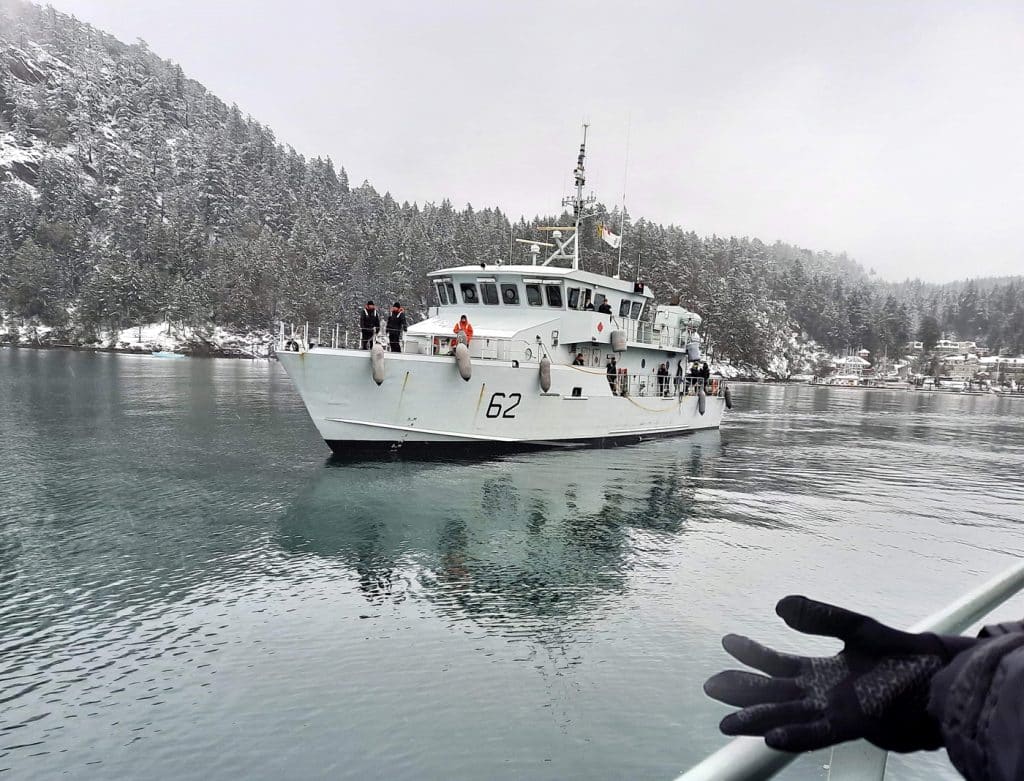Nice article, for a PAO

By
Lookout on Apr 12, 2021 with
Comments 0

Orca-Class patrol vessel Moose comes alongside after pilotage training for Naval Warfare Officers on ETTRICK NWO IV course. Pilotage training involves the careful navigation of a ship through hazardous areas. Photo by S3 Ioannis Giannisis
A/SLt Ty Pellerin
Base PA Office
––
Being on the bridge of a warship as a Naval Warfare Officer (NWO) can, at times, be the most stressful job in the Royal Canadian Navy.
Situations a NWO could find themselves in range from emergency actions for a person overboard, to receiving a helicopter resupply, to piloting a ship through narrow waters around dangerous hazards.
“My memorable moment [in training] was conducting pilotage through Sansum Narrows in a snowstorm and having to stop the ship because a pod of transient orcas was approaching us from the other direction,” said SLt Bryan Cole, a member of the ETTRICK NWO IV course that graduated on April 8.
The NWO IV course takes roughly 96 training days to complete, and when combined with the other two phases, amounts to 219 days to become a NWO.
Training is run by Naval Fleet School (Pacific), and each course is overseen by a Course Training Officer. Students cover foundational aspects of the Royal Canadian Navy, giving them the tools to lead and work on ships.
The NWO course is one of the toughest courses an officer can take, and the COVID-19 pandemic introduced additional challenges for students and staff this time around.
Being on the bridge of a warship as a Naval Warfare Officer (NWO) can, at times, be the most stressful job in the Royal Canadian Navy.

www.lookoutnewspaper.com







